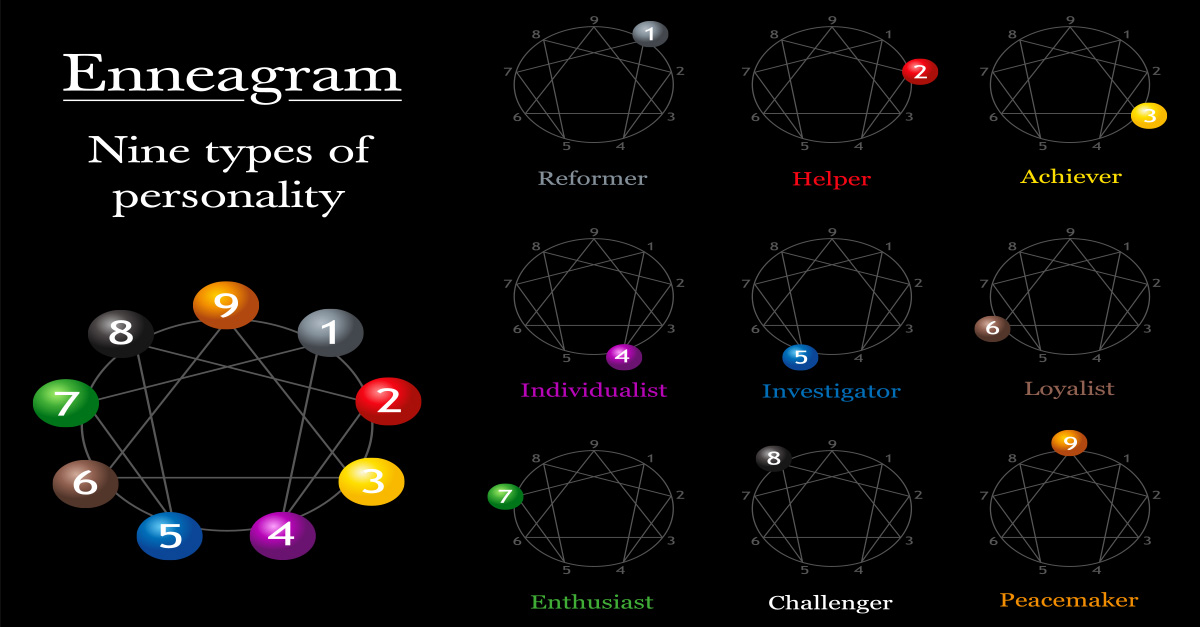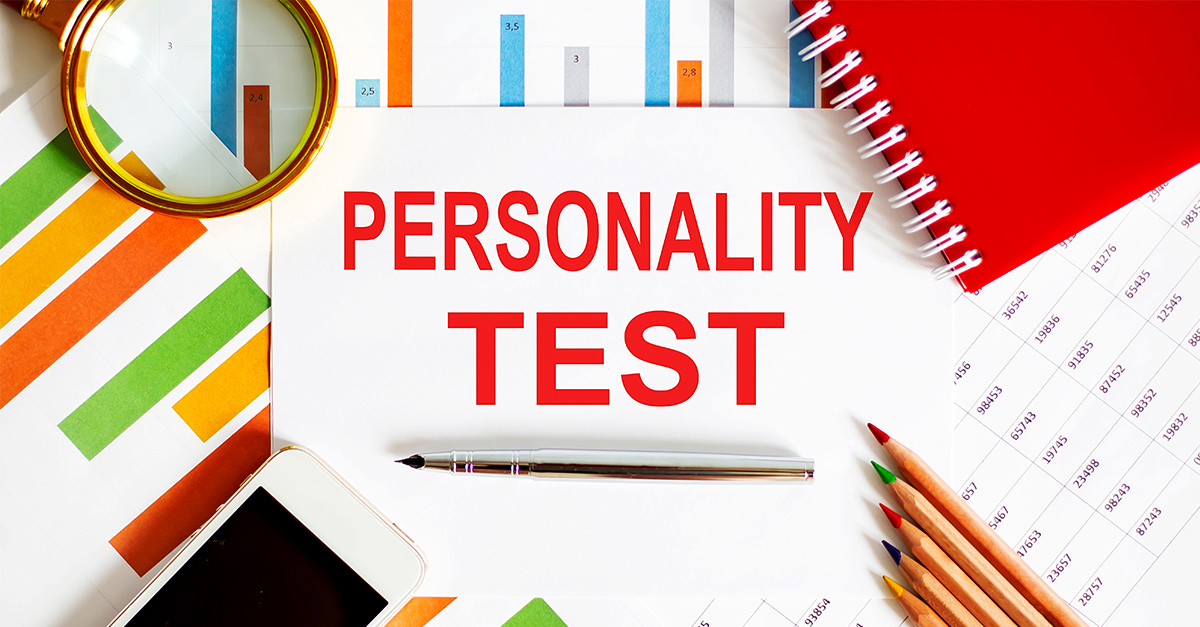


Get a free copy of Parental Rights & Education when you subscribe to our newsletter!

Christians should avoid using this popular “personality test” as it could potentially open them up to spiritual deception and harm. Instead, they should prioritize the teachings of the Bible and the guidance of the Holy Spirit, seeking to develop Christ-like character traits.
Read part 1 of this two-part series here.
In the first part of this Biblical Worldview series, I explained the rise of the Enneagram’s popularity in Christian circles and gave an overview of its origins and background. Now, in part 2, I will provide a biblical critique and warning about the Enneagram.
Remember, the basis of a biblical worldview is the act of “taking every thought captive” and examining it through the lens of sound doctrine and Christian truth: “We destroy arguments and every lofty opinion raised against the knowledge of God, and take every thought captive to obey Christ” (2 Corinthians 10:5).
At the end of the day, how Christians engage with the Enneagram shouldn’t be based on our feelings or preferences, but on whether or not we believe the Enneagram can be faithfully employed by Christians without compromising with unbiblical — and even evil — notions of “spirituality.”
While other Christians may disagree, I think a biblical worldview on this topic means that Christians should not use or promote the Enneagram. Here are two reasons why.
I briefly covered these issues in the first article when discussing the origin of the Enneagram, but let’s look a little more closely now.
One of the main founders of the Enneagram, Oscar Ichazo, claims that he discovered the personality type meaning of the Enneagram when it was taught to him by the Archangel Metraton while he was high on mescaline.
We know that there are spiritual forces at work in this world. However, for Ichazo to claim he was visited by the “Archangel Metraton” while he was on drugs is not a sign of holy, divine revelation from the Triune God, but rather communing with demons. There are only a handful of angels who are named in Scripture, including Gabriel and Michael, who is referred to in Jude 1:9 as the “archangel.” We do know that demons are real, as they are fallen angels who rebelled against God.
It is almost certain that if Ichazo communed with any spiritual being while high, it was a demon.
The occult and demonic connections continue, as Naranjo credits the process of “automatic writing” to develop the Enneagram further. Automatic writing is a practice in which a person allows themselves to write or dictate without conscious thought or control, often claiming that the writing is guided by external or spiritual forces.
Again, any “spiritual forces” that would occupy a person for something like “automatic writing” would be demonic forces.
Ephesians 6:10-12 warns Christians to “be strong in the Lord and in the strength of his might. Put on the whole armor of God, that you may be able to stand against the schemes of the devil. For we do not wrestle against flesh and blood, but against the rulers, against the authorities, against the cosmic powers over this present darkness, against the spiritual forces of evil in the heavenly places.”
These verses highlight the need for Christians to be strong in their faith and to rely on God’s power to protect them from the spiritual forces of darkness. It emphasizes the importance of putting on the “whole armor of God,” including the Belt of Truth and the Sword of the Holy Spirit, to be able to stand against the devil’s schemes. We are to resist dark spiritual forces, not play around with them under the cover of “getting to know ourselves better” through personality tests.
If the Enneagram was indeed the product of demonic communication resulting from automatic writing, Christians should not engage with it at all, but rather warn others against it. The Bible is clear about the need to avoid all forms of spiritual darkness, deception, and communication with demonic forces. In such a case, Christians should be wary of any tool or concept that has its roots in demonic communication.
2 Corinthians 11:14 also teaches that: “Even Satan disguises himself as an angel of light.”
This verse warns Christians about the deceptive nature of Satan and his ability to disguise himself as something good or innocent. It serves as a reminder that even seemingly harmless or beneficial tools or concepts can have sinister origins and should be approached with discernment and caution — and ultimately rejected.
Jackie Hill Perry, a Christian hip hop star who used to promote the Enneagram to her friends and followers, now discourages Christians from using it after she discovered its occultic origins, describing it as “doctrines of demons, divination, witchcraft.”
As reported by the Christian Post, Hill explained that
“she also used the Enneagram to give herself ‘language for who I was and what made me tick and how to understand other people apart from the Spirit.’
‘But I think what I’m seeing is that if these men develop this framework, from demons, then that means that we are actually choosing to understand ourselves in ways that has nothing to do with the Spirit of God,’ Hill concluded. ‘Why wouldn’t Satan want to influence the way we understand ourselves?’”
The dark, occultic, and likely demonic origins of the Enneagram should be reason enough for Christians to refuse to incorporate it into their lives.
Even if you are skeptical that the Enneagram is actually demonic, let me briefly offer one more reason from a biblical worldview to reject the Enneagram.
What the Enneagram offers, most fundamentally, is an alternative path to self-discovery and personal growth, coupled with a form of spirituality and mysticism, that is not grounded in God’s Word or the character traits that develop as a result of a life submitted to God.
Christians aren’t called to vague spiritual journeys of self-discovery. We are called to grow in grace and truth and to exhibit the fruits of the Spirit (Galatians 5), not some man-made personality types.
In 1 Corinthians 11;1, Paul encourages believers to “Follow my example, as I follow the example of Christ.”
Christ is our type, our pattern, our goal — not an Enneagram number. We don’t need a test to figure out who we are or what we should be like. We just need to open the Bible: “For the word of God is living and active, sharper than any two-edged sword, piercing to the division of soul and of spirit, of joints and of marrow, and discerning the thoughts and intentions of the heart” (Hebrews 4:12).
DeYoung, again, helpfully explains that “the Enneagram presents an approach to spirituality that is alien to, and often at odds with, the language and contours of Scripture.”
In his review of a popular pro-Enneagram book, DeYoung points out that “Every chapter talks about some combination of forgiving myself, finding my true self, becoming spiritually evolved, being healed from wounded messages, dealing with codependent behaviors, and pursuing personal wholeness. This is not the language of the Bible. We hear nothing about fear of man, the love of the praise of man, covenantal promises, covenantal threats, repentance, atonement, heaven or hell.”
No, that’s not the language of the Bible. At best, it’s the language of sinful and self-focused man. At worst, it’s the language of demons.
In Colossians 2:8, Paul warns believers to “See to it that no one takes you captive by philosophy and empty deceit, according to human tradition, according to the elemental spirits of the world, and not according to Christ.”
That appears to perfectly describe the Enneagram. It is a philosophy of human tradition and most likely according to the elemental spirits of the world, which are spirits in opposition to Christ, and not according to Christ.
I can understand that many Christians who haven’t encountered the information I set forth in this two-part series might be taken aback. “Wait, I thought the Enneagram was just a test to find out my strengths?!” That is many people’s mistaken assumption, hence the importance of addressing the real nature of the Enneagram from a biblical worldview.
The bottom line is that the Enneagram has a direct connection with occult practitioners and demonic origins. Even if you know that and are on guard, the entire system proposes an alternative understanding of spirituality — one rooted in nebulous, New Age-like spiritual self-discovery, not Christian sanctification by the Holy Spirit.
Ultimately, Christians should avoid using the Enneagram as it could potentially open them up to spiritual deception and harm. Christians should instead prioritize the teachings of the Bible and the guidance of the Holy Spirit. They should seek to grow in their relationship with God and develop Christ-like character traits, rather than relying on a counterfeit spiritual system that may have demonic origins.
Instead of using the Enneagram to help chart your path in this world, which is full of fads and frauds and darker things than we often imagine, rely on the Philippians 4:8 test:
“Finally, brothers, whatever is true, whatever is honorable, whatever is just, whatever is pure, whatever is lovely, whatever is commendable, if there is any excellence, if there is anything worthy of praise, think about these things.”
For by doing so, you will develop the kind of personality strengths that truly matter and you will always walk in the light.
If you like this article and other content that helps you apply a biblical worldview to today’s politics and culture, consider making a small donation here.
Christian conservative news and issues that matter. Curated just for you!
